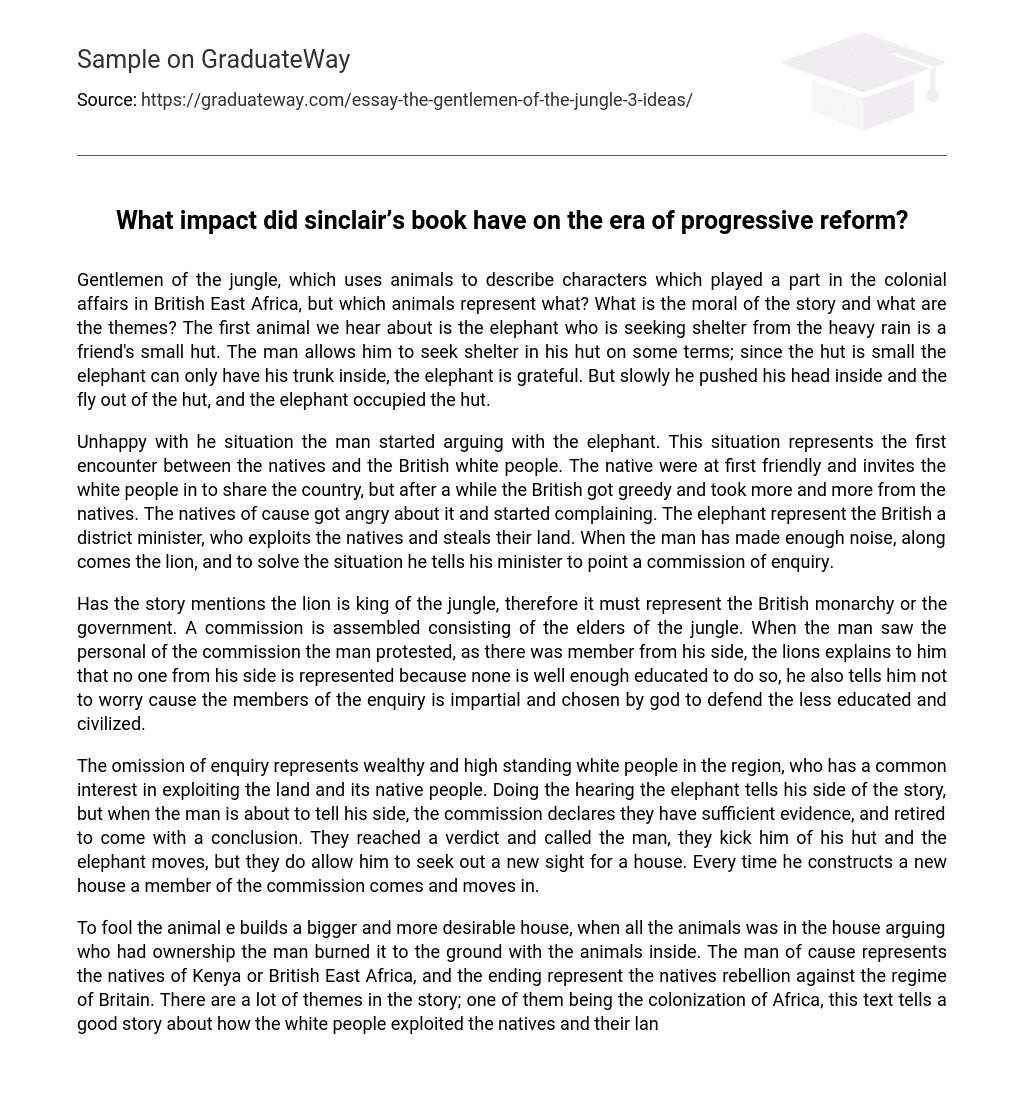Gentlemen of the jungle, which uses animals to describe characters which played a part in the colonial affairs in British East Africa, but which animals represent what? What is the moral of the story and what are the themes? The first animal we hear about is the elephant who is seeking shelter from the heavy rain is a friend’s small hut. The man allows him to seek shelter in his hut on some terms; since the hut is small the elephant can only have his trunk inside, the elephant is grateful. But slowly he pushed his head inside and the fly out of the hut, and the elephant occupied the hut.
Unhappy with he situation the man started arguing with the elephant. This situation represents the first encounter between the natives and the British white people. The native were at first friendly and invites the white people in to share the country, but after a while the British got greedy and took more and more from the natives. The natives of cause got angry about it and started complaining. The elephant represent the British a district minister, who exploits the natives and steals their land. When the man has made enough noise, along comes the lion, and to solve the situation he tells his minister to point a commission of enquiry.
Has the story mentions the lion is king of the jungle, therefore it must represent the British monarchy or the government. A commission is assembled consisting of the elders of the jungle. When the man saw the personal of the commission the man protested, as there was member from his side, the lions explains to him that no one from his side is represented because none is well enough educated to do so, he also tells him not to worry cause the members of the enquiry is impartial and chosen by god to defend the less educated and civilized.
The omission of enquiry represents wealthy and high standing white people in the region, who has a common interest in exploiting the land and its native people. Doing the hearing the elephant tells his side of the story, but when the man is about to tell his side, the commission declares they have sufficient evidence, and retired to come with a conclusion. They reached a verdict and called the man, they kick him of his hut and the elephant moves, but they do allow him to seek out a new sight for a house. Every time he constructs a new house a member of the commission comes and moves in.
To fool the animal e builds a bigger and more desirable house, when all the animals was in the house arguing who had ownership the man burned it to the ground with the animals inside. The man of cause represents the natives of Kenya or British East Africa, and the ending represent the natives rebellion against the regime of Britain. There are a lot of themes in the story; one of them being the colonization of Africa, this text tells a good story about how the white people exploited the natives and their land for fortunes. The text is also a prime example that brute force does not match wisdom.





